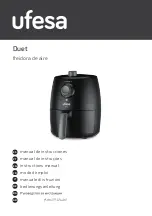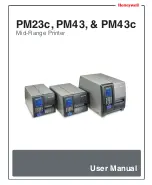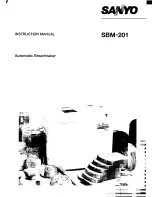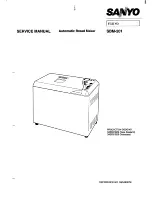
8
A.3
Personal protection equipment
Summary table of the Personal Protection Equipment (PPE) to be used during the various stages of the machine's
service life.
Stage
Protective
garments
Safety
footwear
Gloves
Glasses
Safety
helmet
Transport
—
●
○
—
○
Handling
—
●
○
—
—
Unpacking
—
●
○
—
—
Installation
○
●
○
1
—
—
Normal use
—
○
—
—
—
Adjustments
—
○
○
—
—
Routine
cleaning
—
—
○
2
—
—
Extraordi-
nary
cleaning
○
●
○
○
—
Maintenance
○
●
○
○
—
Dismantling
○
●
●
○
—
Scrapping
○
●
●
○
—
Key:
●
PPE REQUIRED
○
PPE AVAILABLE OR TO BE USED IF NECESSARY
—
PPE NOT REQUIRED
1. During these operations, gloves must be cut-resistant. Failure to use the personal protection equipment by
operators, specialized personnel or users can involve exposure to damage to health (depending on the
model).
2. During these operations, gloves must be suitable for contact with chemical substances used (refer to the
safety data sheet of the substances used for information regarding the required PPE). Failure to use the
personal protection equipment by operators, specialized personnel or users can involve exposure to
chemical risk and cause possible damage to health (depending on the model).
A.4
Transport, handling and storage
• Due to their size, the machines cannot be stacked on top of each other during transport,
handling and storage; this eliminates any risks of loads tipping over due to stacking.
• Do not stand under suspended loads during loading or unloading operations.
Unauthorized personnel must not enter the work area.
• The weight of the appliance alone is not sufficient to keep it steady.
• For machine lifting and anchoring, do not use movable or weak parts such as: casings,
electrical raceways, pneumatic parts, etc.
• Do not push or pull the machine to move it, as it may tip over. Use proper tool to lift the
machine.
• Machine transport, handling and storage personnel must be adequately instructed and
trained regarding the use of lifting systems and personal protection equipment suitable
for the type of operation carried out.






































